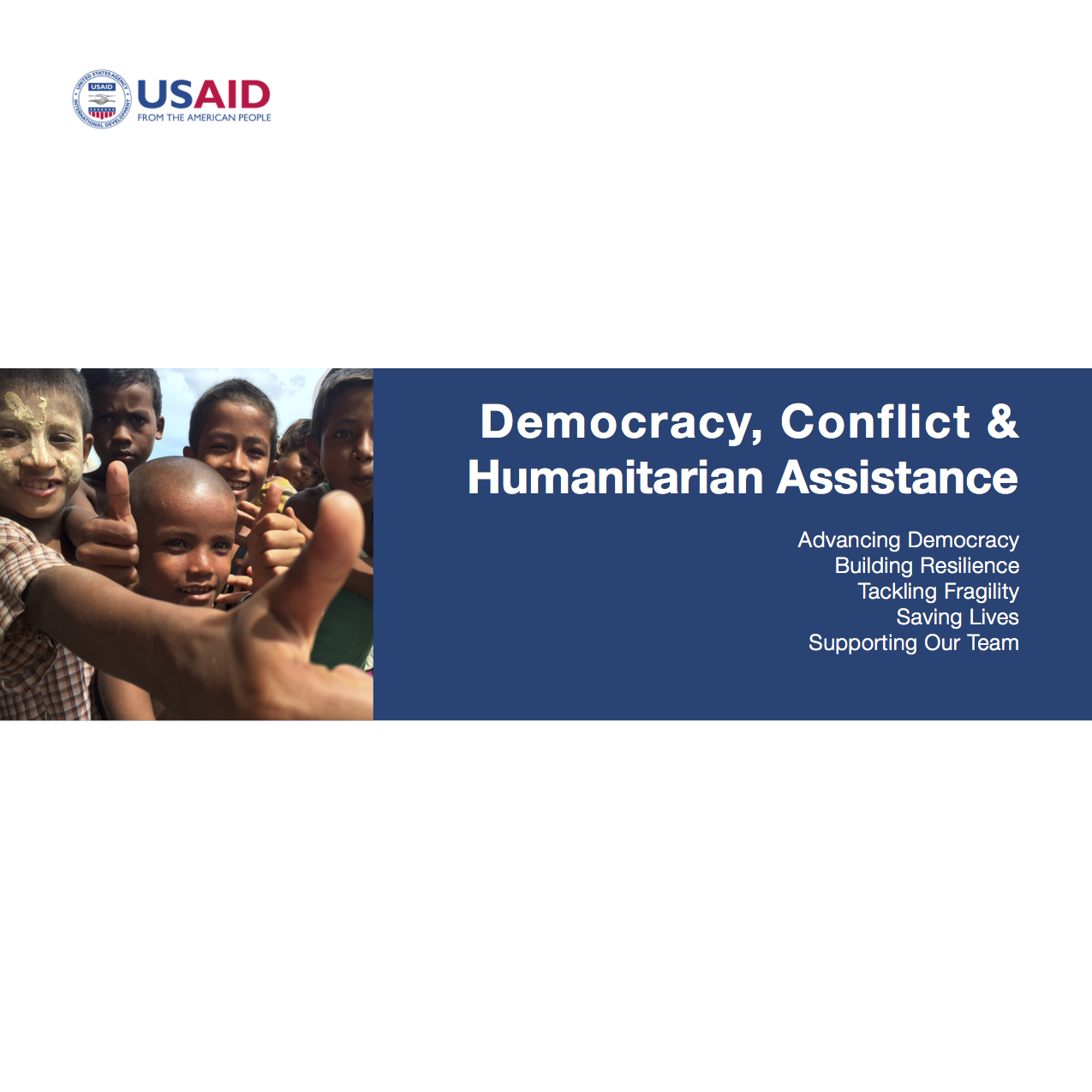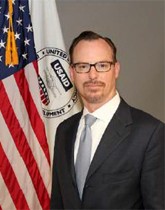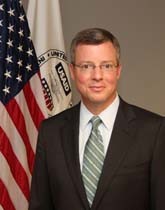- Who We Are
- Mission, Vision and Values
- Organization
- Leadership
- Office of the Administrator
- Bureaus
- Africa
- Asia
- Europe and Eurasia
- Latin America and the Caribbean
- Middle East
- Democracy, Conflict and Humanitarian Assistance
- Center of Excellence on Democracy, Human Rights and Governance
- Office of American Schools and Hospitals Abroad
- Office of Civilian-Military Cooperation
- Office of Conflict Management and Mitigation
- Office of Crisis Surge Support Staff
- Office of Food for Peace
- Office of Program, Policy, and Management
- Office of Transition Initiatives
- Office of U.S. Foreign Disaster Assistance
- Economic Growth, Education and Environment
- Food Security
- Global Health
- Legislative and Public Affairs
- Management
- Policy, Planning and Learning
- Foreign Assistance
- U.S. Global Development Lab
- Independent Offices
- Mission Directory
- Staff Directory
- Advisory Committee
- Board for International Food and Agricultural Development
- Mission Directors
- Coordinators
- Global Development Council
- USAID History
- Operational Policy (ADS)
- Transparency
- Resource Portal
The Bureau for Democracy, Conflict, and Humanitarian Assistance promotes democratic and resilient societies that are able to mitigate disasters and conflicts, and stay on a path toward peace and prosperity.
With over 800 team members, the Bureau rapidly deploys expertise, resources, and capabilities to save lives and lay the groundwork for good governance and inclusive growth. The Bureau works to: Advance Democracy, Build Resilience, Tackle Fragility, Save Lives, and Support Our Team.
Technical Assistance
Amidst growing restrictions against fundamental freedoms globally, USAID remains committed to bolstering the role of civil society. We build the capacity of local organizations and newly-formed or evolving governments to preserve and expand democratic and peaceful space in complex political environments.
Coordination and Response
The Office of U.S. Foreign Disaster Assistance has the Presidential authority to lead and coordinate international humanitarian disaster response. The Office can rapidly deploy a Disaster Assistance Response Team (DART), which draws on expertise across the U.S. government to provide the most timely and effective humanitarian response. Bureau offices have surge staff available to rapidly augment USAID disaster relief, food aid, and responses to complex crises.
Early Warning
The Bureau has early warning systems, including the Famine Early Warning System Network (FEWSNET) and tools that measure the risk of armed conflict across countries. These systems inform programs to prevent and respond to crises—from droughts to electoral violence—in a timely manner.
Prepositioned Commodities
The Bureau has three emergency warehouses overseas stocked with essential relief supplies that can be transported rapidly to disaster-affected areas around the globe; and eight sites where 100,000 tons of food commodities are rapidly dispatched when food aid needs arise.
Agile Funding
The Bureau deploys agile funding to respond to crises, including:
- The International Disaster Assistance account allows for a rapid response to humanitarian crises.
- With new flexibilities in the Farm Bill, Food for Peace Title II cash assistance can be used to quickly respond to food crises.
- The Transition Initiatives account enables rapid programming to take advantage of new opportunities to advance transitions and address confli
- The Elections and Political Processes fund supports programs in countries experiencing an urgent need due to snap elections, electoral violence, and political instability.
- The Human Rights Grants Program provides grants to address urgent Human Rights abuses with local partners through USAID missions.
- The Complex Crises Fund enables timely investments to catalyze peace and mitigate conflict in advance or in the face of unforeseen crises or violence.
For more information, download our brochure. [PDF, 4MB]
The Bureau for Democracy, Conflict, and Humanitarian Assistance has nine offices headquartered in Washington, D.C.
- The Office of U.S. Foreign Disaster Assistance (OFDA) leads and coordinates the U.S. Government’s humanitarian assistance in response to disasters overseas by saving lives, alleviating human suffering, and reducing the social and economic impact of disasters, all while helping communities and governments build capacity to prepare for disasters and mitigate their consequences.
- The Office of Transition Initiatives (OTI) supports U.S. foreign policy by seizing emerging windows of opportunity in the political landscape to promote stability, peace, and democracy by catalyzing local initiatives through adaptive and agile programming.
- The Office of Food for Peace (FFP) aims to improve the food security of vulnerable populations around the world through development and emergency food assistance to save lives, tackle under-nutrition, build household and community resilience, and break the cycle of poverty and hunger.
- The Center of Excellence on Democracy, Human Rights and Governance (DRG) generates and disseminates knowledge about the global advancement of democracy, human rights, and governance; elevates the role of democracy, human rights, and governance in key USAID, U.S. Government, and multilateral strategies; and provides technical support to USAID missions implementing programs in these areas.
- The Office of Crisis Surge Support Staff (CS3), mobilizes highly qualified technical experts providing critical development skill sets to USAID Missions in support of operations essential to crisis prevention, response, recovery, and transition efforts.
- The Office of Civilian-Military Cooperation (CMC) serves as USAID’s primary point of contact with the Department of Defense, and leverages the unique capabilities of USAID and Department of Defense to achieve better development outcomes in pursuit of U.S. national security goals and national values.
- The Office of Program, Policy, and Management (PPM) provides oversight, guidance, coordination, and support on administrative, management, program, and policy issues, and manages the Crisis and Opening Action Coordination Teams, and the Complex Crises Fund through an interagency Monitoring and Review Committee.
- The Office of Conflict Management and Mitigation (CMM) identifies and analyzes sources of conflict and fragility, supports early responses to address the causes and consequences of instability and violent conflict, and integrates conflict mitigation and management into USAID’s analysis, strategies, and programs.
- The Office of American Schools and Hospitals Abroad (ASHA) provides funds for construction, renovation, and the purchase of durable commodities to strengthen overseas schools, hospitals, and libraries in order to build mutual understanding and friendship with people of other countries through the demonstration of the best in American ideas and practices in health and education.










Comment
Make a general inquiry or suggest an improvement.